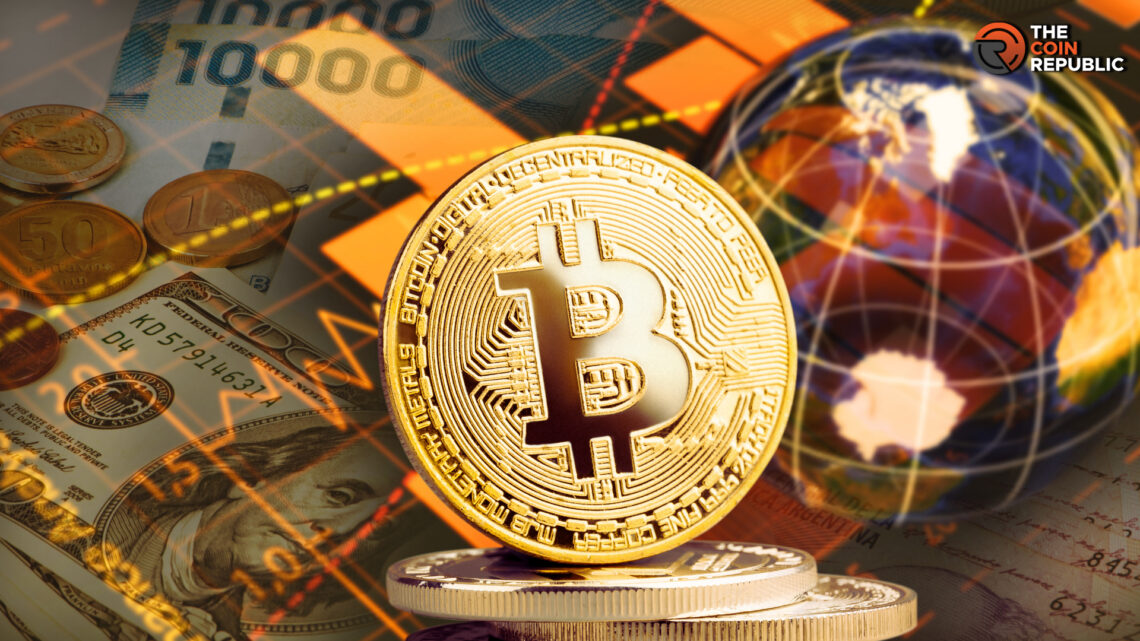- 1 The crypto sector is a largely unregulated market globally.
- 2 Virtual currencies have been associated with illicit activities in the past.
The wobbling ships of cryptocurrencies have always been a cluster of vigilantes in regulatory eyes, primarily owing to unleashed projects causing chaos on investors’ land. Ramaa Vasudevan, a professor at Colorado State University and the author of Things Fall Apart, appeared in an interview with American political magazine Jacobin to discuss the “Wild West of finance.”
A Hurdle to Traditional Finance
Vasudevan believes cryptocurrencies upend the traditional finance model. She says, “It’s not based on the guarantee of any bank or the state for its acceptability or credibility.” Their decentralized nature is the crux of the matter lawmakers have failed to figure out yet.
Blockchain, the technology underlying crypto, tags digital assets with the label of decentralization. She posits, “This is what distinguishes crypto from “boring” finance.” Authorities like the European Union (EU) brought the Markets in Crypto-Assets Act (MiCA), a regulatory framework to regulate the crypto sector, into law this year.
Moreover, she declared crypto a potential challenge to traditional finance. Indicating the situation, she asserts, “Decentralized, trustless, anonymous, peer-to-peer, blockchain-enabled mechanisms could be wielded to challenge the stranglehold of big finance.”
Although unregulated, the crypto sector fails to meet the requisites of a truly decentralized market. The professor underscores that “crypto tokens are concentrated in a few hands.” Large investors have the power to manipulate a coin’s price while small investors can only stand and watch.
Cryptocurrencies have been associated with illicit activities in the past. Office of Foreign Assets Control of The Treasury blacklisted Tornado Cash, a crypto address obfuscator protocol, in August 2022. Recently, news agency CNBC reported that two of the platform’s founders were charged with money laundering of assets worth over a billion.
“The frenzy for collecting and trading digital assets has not established them as a means of payment, except in the shady world of money laundering, illegal trades, the darknet, and corporate ransomware,” Vasudevan says. She also highlights crypto’s involvement with opioid trafficking.
She further adds, “Crypto tokens really serve as a financial asset which is held and transacted in the hope of making speculative gains.”
Sustainability Leading to Crypto Inequality
Talking about the environmental impact of cryptocurrencies, she digs up the cost of shifting from the energy-intensive Proof-of-Work (PoW) algorithm to the Proof-of-Stake (PoS) mechanism. This may promote inequality given that only holders of that crypto asset can take part in the network’s validation.
The collapse of the Terra ecosystem summoned a seemingly endless crypto winter. However, the market recovered anyway. Ramaa Vasudevan sees such schemes as “too good to be true.” The cryptocurrency market saw about $40 Billion being wiped out in the event’s aftermath.
The interview closes with a discussion regarding cryptoverse’s potential to become an economic “battleground.” between the US and China. She points out that China already has an upper hand here. The nation introduced its blockchain-based Digital Renminbi (e-CNY) in August 2020.
It is unlikely the digital assets market will avoid the scrutinizing eyes of regulators. However, a proper framework that provides both parties with satisfactory regulatory grounds may add to the global adoption.
Anurag is working as a fundamental writer for The Coin Republic since 2021. He likes to exercise his curious muscles and research deep into a topic. Though he covers various aspects of the crypto industry, he is quite passionate about the Web3, NFTs, Gaming, and Metaverse, and envisions them as the future of the (digital) economy. A reader & writer at heart, he calls himself an “average guitar player” and a fun footballer.


 Home
Home News
News










